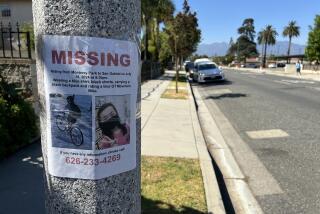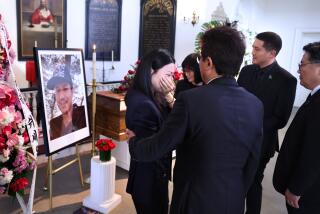For troubled killer, a campus support system that failed
- Share via
A misunderstanding of federal privacy laws among Virginia Tech officials, including a failure to notify his parents, was a major reason why Seung-hui Cho did not receive sustained mental-health counseling that might have prevented his rampage, according to a report released last week.
The analysis -- from a special panel reporting to Virginia Gov. Timothy M. Kaine -- and another report filed earlier this summer by the state’s inspector general showed that many people were concerned about Cho, a loner who rarely spoke but sometimes referred to an imaginary twin brother and harassed female students.
The inspector general’s report states that students and faculty concerned with Cho’s behavior contacted various campus authorities “to seek consultation, file complaints and to request intervention . . . there was a great deal of communication involving many individuals and offices.”
Students warned one another about Cho and one requested transfer to another dormitory to get away from him. An instructor found his behavior so threatening she asked for police coverage of the classroom. Arrangements were made instead for Cho to receive private tutoring.
Residence hall advisors talked repeatedly to Cho about his behavior, and campus police warned him to stop harassing fellow students.
In December 2005, Cho threatened suicide and campus police took him into custody for an evaluation to determine if he needed hospitalization. Cho was involuntarily hospitalized but released the next day after a hearing in which the court ordered him to seek outpatient mental-health treatment at the campus counseling center. No one from the school -- police, school officials or roommates -- attended the hearing to attest to Cho’s history and current behavior. He was discharged and didn’t come to the attention of the larger world until April 16.
Cho’s family was never informed of his troubles or his suicide threat. (Cho himself refused to call them.) In the governor’s report, the family makes clear it had long harbored concerns about his mental well-being and would have interceded to help him. “We would have taken him home and made him miss a semester to get this looked at . . . but we just did not know . . . about anything being wrong,” it was quoted in the report
Cho was diagnosed with depression and suicidal and homicidal thoughts by the eighth grade. His parents worked closely with his high school counselors, teachers, a therapist and a psychiatrist to help the excessively shy and withdrawn boy. However, the report notes, that support system fell apart after Cho went to college. The reports also make clear that school officials did not communicate with one another, largely out of privacy concerns and passivity, resulting in a “failure to see the big picture.”
“There was a palpable sense that all these people had known something but hadn’t been able to make anything happen or share it in a way to prompt a response,” says Dr. Miriam Shuchman, a psychiatrist who analyzed the Cho case in the New England Journal of Medicine.
Effective mental-health care usually relies on a team of therapists and others who share information since the patient may provide inconsistent information depending on who they are talking to and their lucidity at the time, says Shuchman. But she says, “It was a shock to me to discover how this is a problem on college campuses. They see themselves as having legal problems working as a team.”
--
More to Read
Sign up for Essential California
The most important California stories and recommendations in your inbox every morning.
You may occasionally receive promotional content from the Los Angeles Times.










